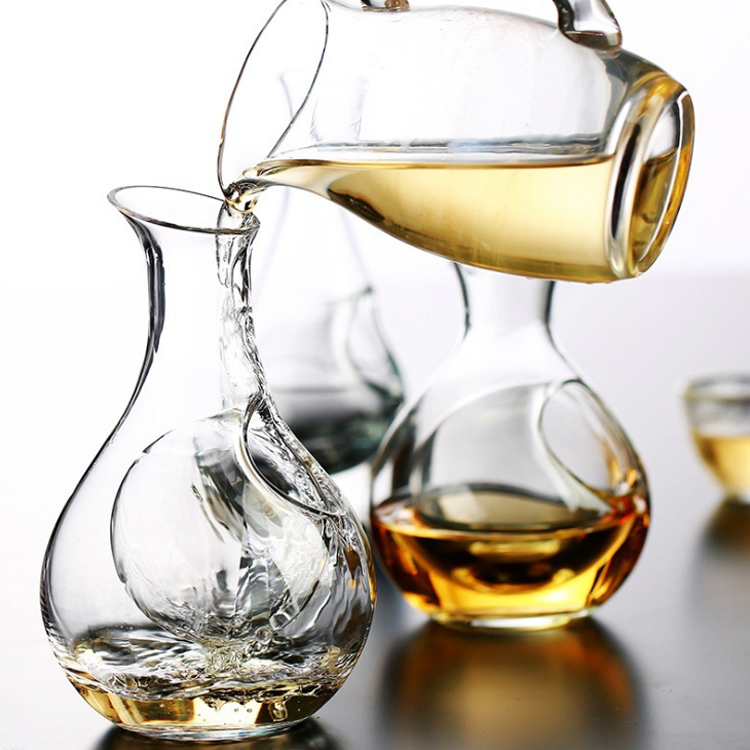Generally speaking, the higher the
transparency, the higher the clarity, the better the uniformity, and the
thinner the wall of the vessel, the better; in addition, whether the shape of
the vessel and the mold fit and whether the seal is smooth are also indicators
for evaluating the vessel.

The difference between soda lime glass and
lead crystal glass is that lead crystal glass has good optical properties, good
light transmittance, metallic feeling on impact, heavier hand feeling, and most
of the surfaces have no patterns, and the walls of the utensils are thin and
very transparent. Generally used For more high-end utensils. The soda-lime
glass has poor permeability, thick wall, and most of the surface has patterns
to cover up the bubbles caused during production. Poor quality glassware will
appear blue or green when looking at the cup due to impurities. In addition,
the content can be analyzed through laboratory tests to finally determine its
actual composition.
In terms of price, the cost of lead crystal
glass and high boron glass has increased due to the addition of lead oxide and
boron oxide. Therefore, the order of the same specifications of glassware from
high to low is lead crystal glass and high boron glass. , Soda-lime glassware;
the price of glassware manufactured by the press-blowing method is higher than
that of the pressing method; the price of glassware with a complicated process
is higher than that with a simple process. Generally, glassware with feet (such
as goblet) is more expensive For high feet, such as a goblet, the cup shape
must be blown out by the pressure-blowing method, and then the cup feet must be
manufactured. Finally, the two are combined to make a finished product. The
process is complicated and the price is naturally higher. On the contrary, the
process is simple and the production efficiency is fast. (Such as the
production of ashtrays, which can be pressed 100 per minute), the price is
naturally relatively cheaper; glassware with surface decoration has one more
process than glassware directly molded and packaged, and the price increases
accordingly.
For glassware of the same quality, white is
the cheapest, static color is more expensive than white, and variegated color
is more expensive; the price of different quality is different, the higher the
quality, the more expensive the price (such as the superior grade is more
expensive than the uniform grade); well-known brand It is more expensive than
ordinary brands; due to the difference in production technology, the price of
the same quality glassware produced in different countries is different.
It is understood that in the glass
composition of the same system, the higher the SiO2 content, the higher the
transparency, the better the thermal and chemical stability, the higher the
refractive index of K2O than NA2O, the gloss, and the better transparency and
whiteness. However, due to the high price of potassium raw materials, they are
generally not used in reality. At present, the common raw materials used in the
production of glassware are lime-soda glass, high boron glass, high white
material and lead crystal glass (high lead crystal glass contains PbO: 30~ 35%, medium lead crystal glass contains PbO: 24-30%, lead crystal
glass (also known as crystal glass) contains PbO: 24%, low lead crystal glass
contains PbO: 24% or less). Among them, soda lime glass has the lowest cost and
is mostly used to produce ordinary glasses; high boron glass is better than
lime soda glass in heat resistance, and its material cost is higher than the
former; high white material has a good ability to withstand rapid temperature
changes. It is mostly used to make glassware for microwave ovens, and its
material cost is higher. Lead crystal glass has high permeability, and
currently only a few developed countries have the production technology. It is
usually used to produce high-end glassware, and its material cost is the
highest. In addition, glassware made of lead crystal glass has a high degree of
manual processing, so the processing cost and added value are high.